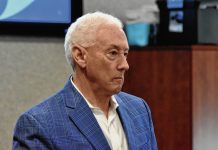Narcotic addiction — especially for heroin and methamphetamine — is a community problem, community stakeholders agree.
But past discussions among government leaders, people in the judicial system, law enforcement and experts in health fields have generated ideological and moral differences among participants.
While many firmly believe battling an narcotic addictions is a matter of character and personal responsibility, others — including many addicts — say it’s unrealistic to expect recovery without community help.
“When they don’t get that drug, they become violently ill,” Columbus Police spokesman Lt. Matt Harris said. “It’s both physical and psychological.”
Outpatient treatment of heroin and methamphetamine addicts in the initial stages is widely regarded as ineffective because patients need to be removed from the drug environment and individuals that led to the addiction.
But in Bartholomew County, a number of city and county officials have stated that long-term, publicly funded residential drug treatment for uninsured and under-insured addicts is far too expensive to consider at this time.
However, treatment can be less expensive than maintaining the status quo, according to statistics from the National Institute on Drug Abuse.
Institute studies show that:
Every dollar invested in addiction treatment programs yields a return of $4 to $7 in reduced drug-related crime, criminal justice costs and theft.
When savings related to healthcare are included, total savings can exceed costs by a ratio of 12 to 1.
Major savings to the individual and to society also stem from fewer interpersonal conflicts, greater workplace productivity and fewer drug-related accidents that include overdoses and death, the institute stated.
But the debate comes full circle when it’s pointed out that most addicts simply don’t want to quit. And even when they do, it often takes several relapses before they finally get off the drug.
Columbus could have the best treatment facility and the best physicians, but until people who need them really want to break their addictions, it’s “all for nil,” Harris said.
“I don’t have the answers,” Harris said. “But we have to come together to ask the hard questions and move forward.”



